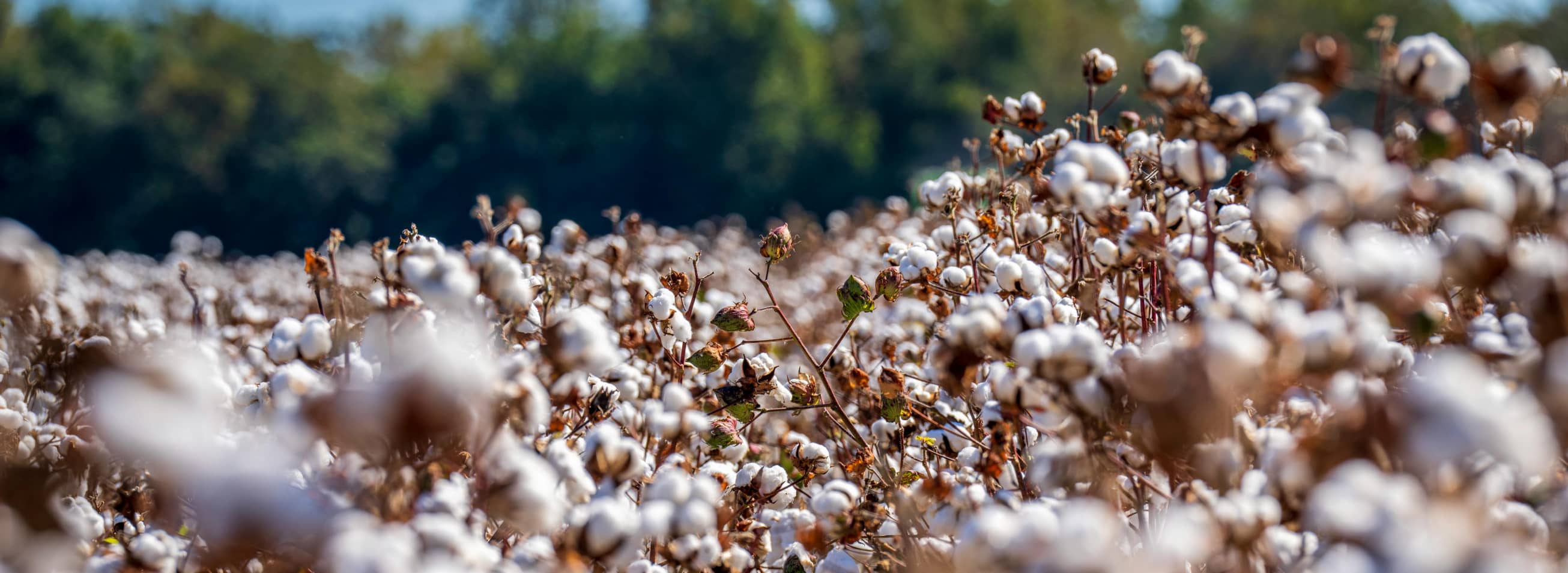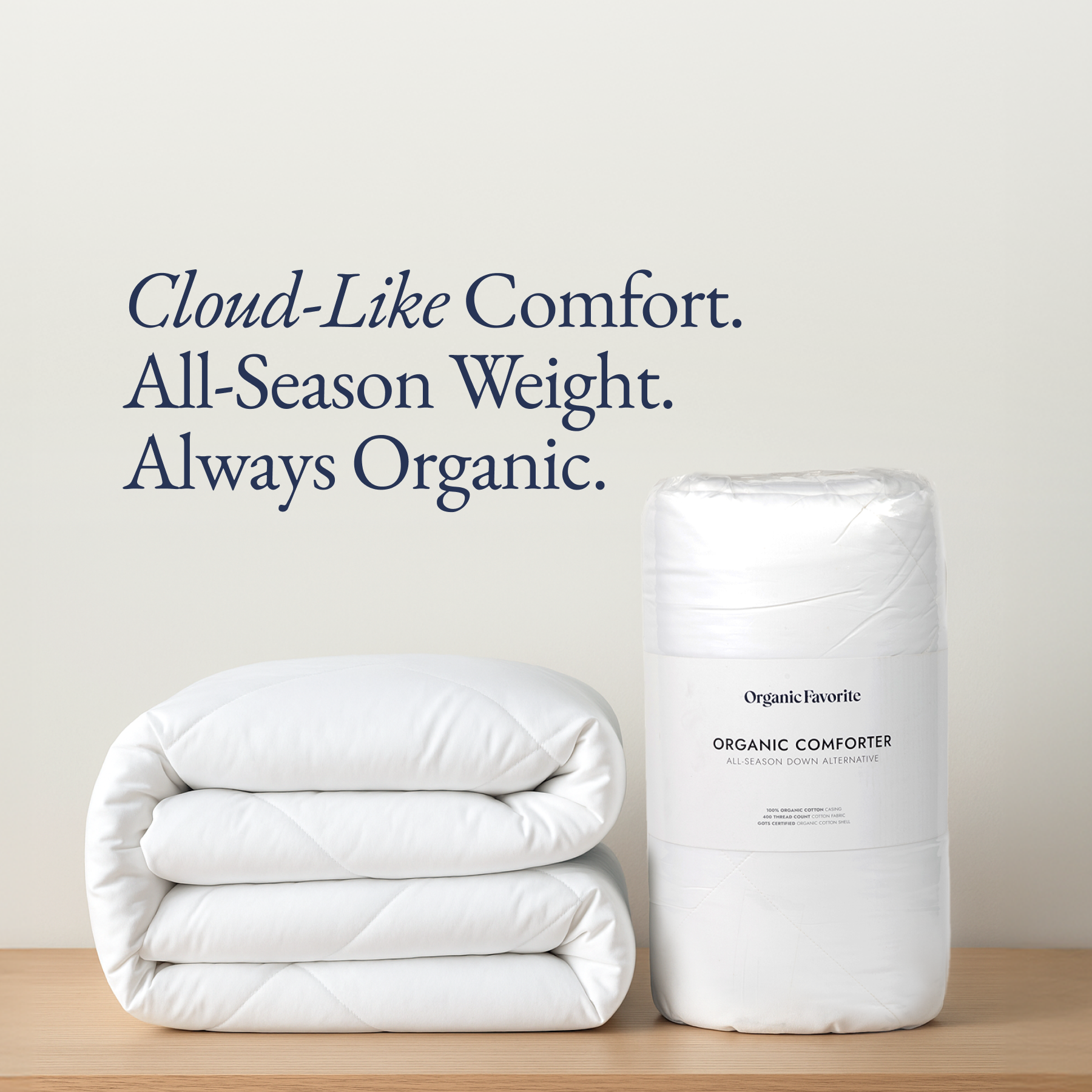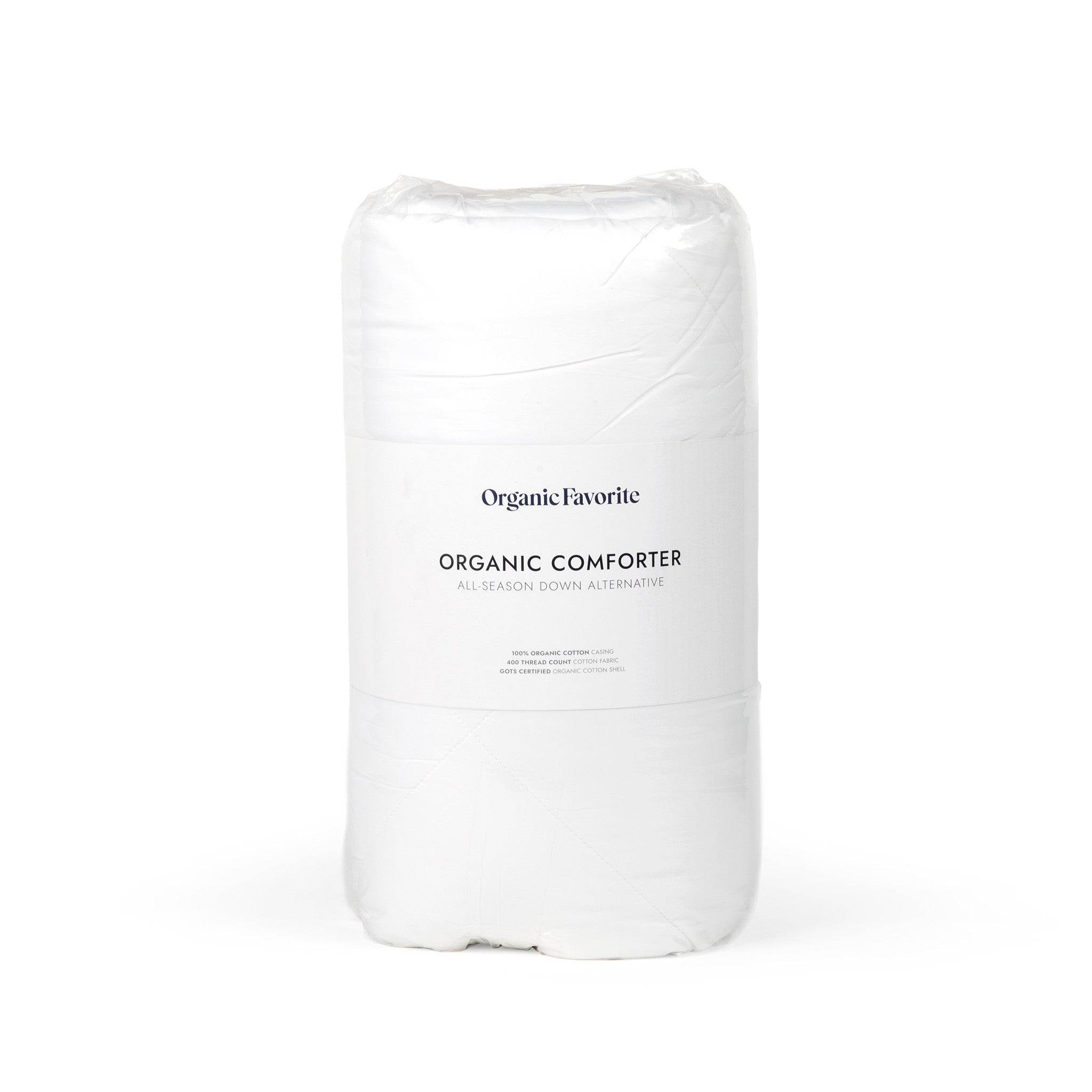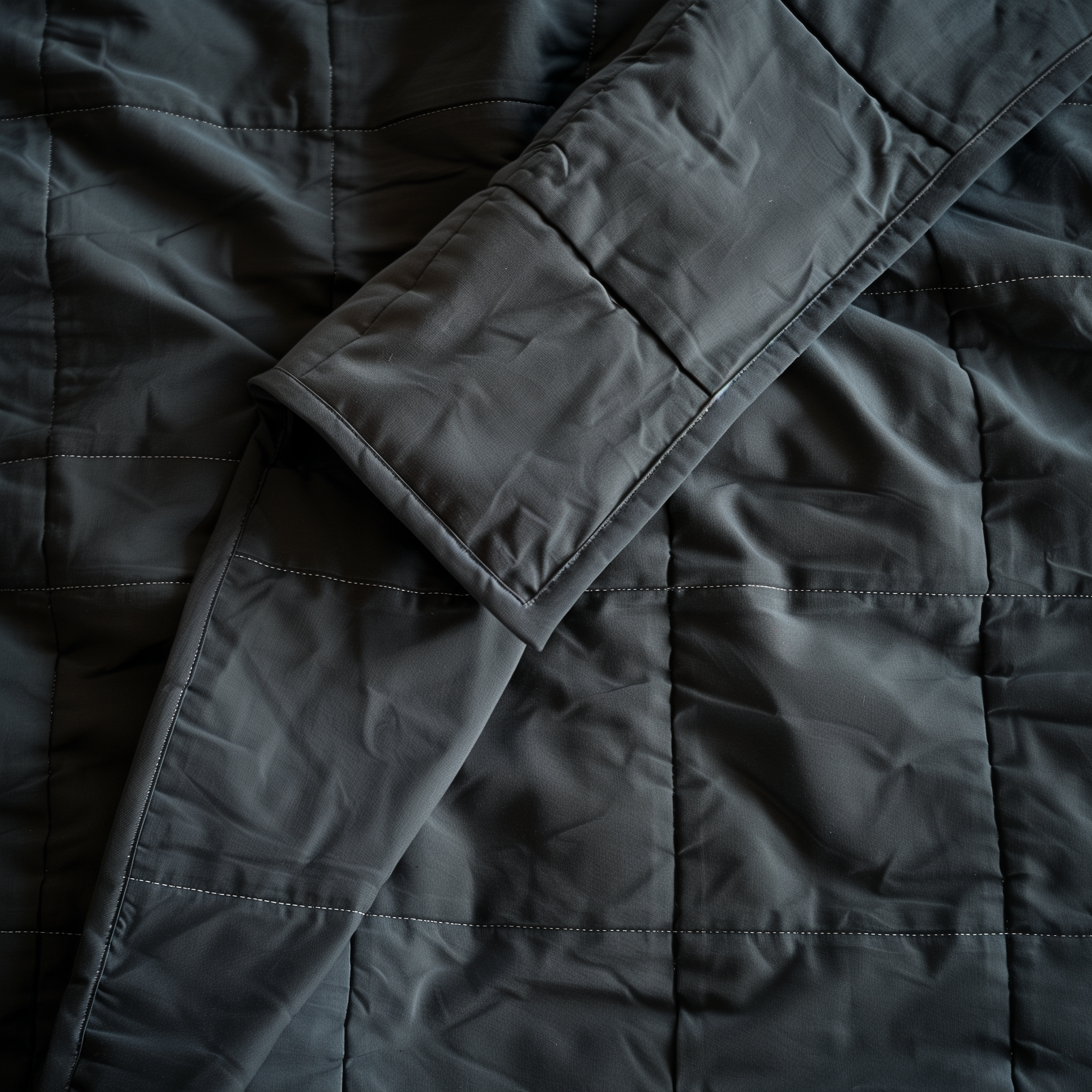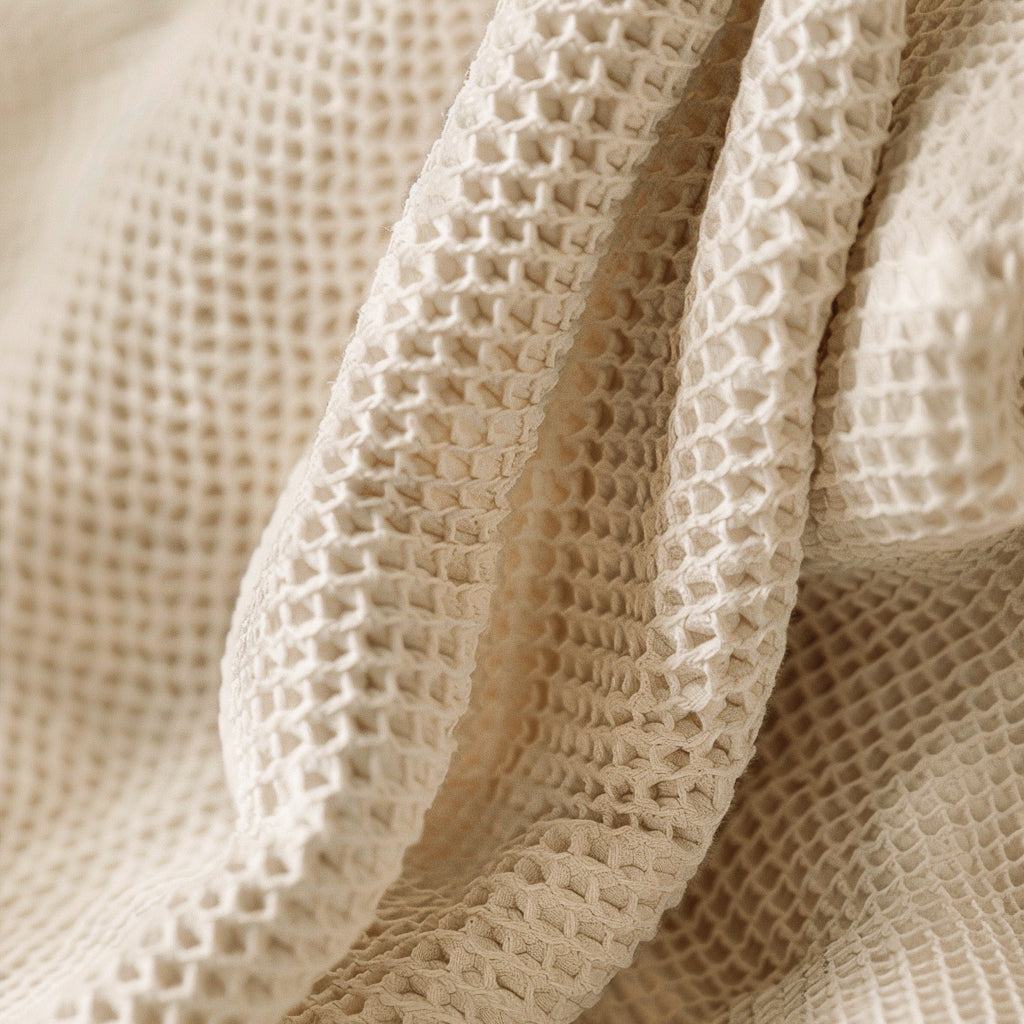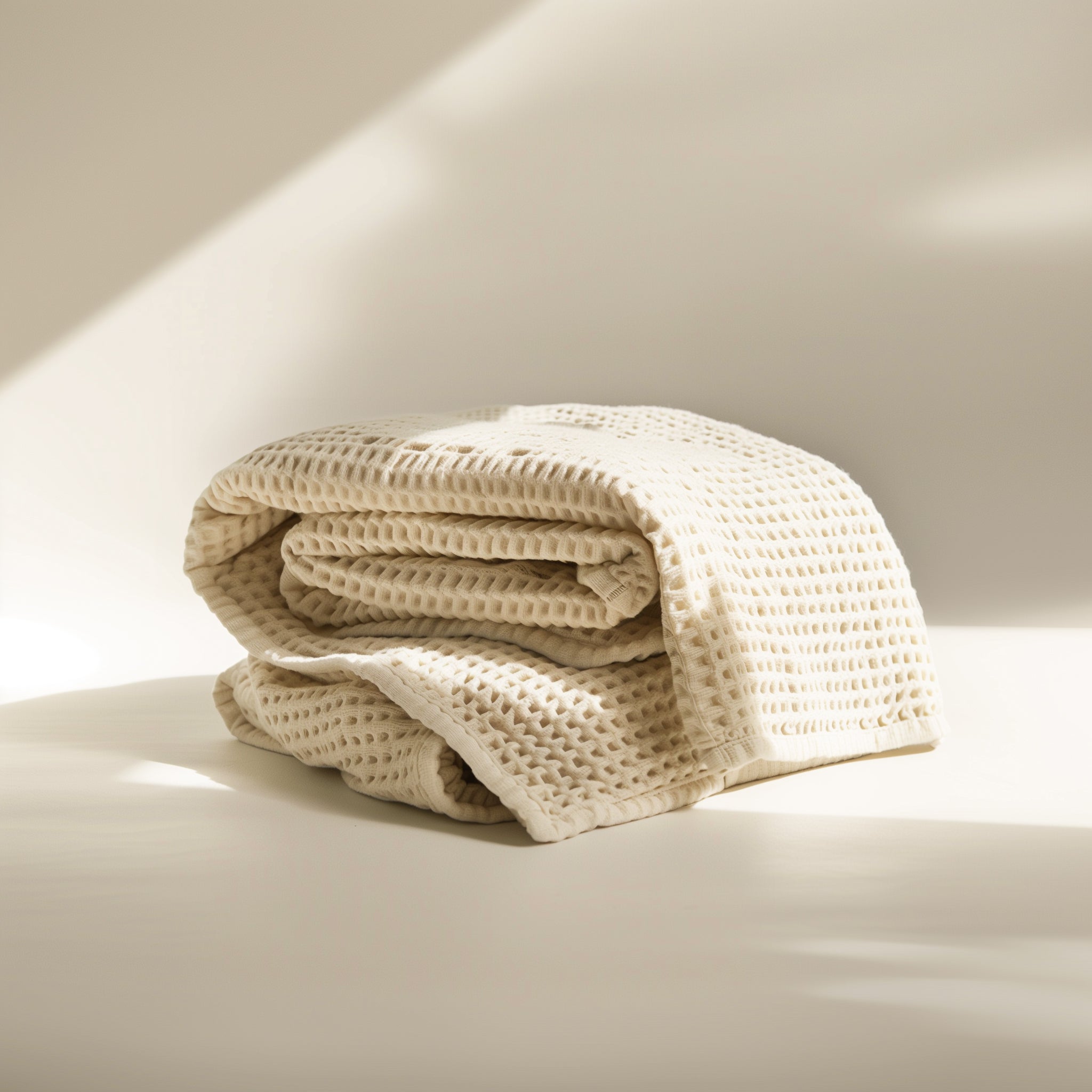We've all heard the term "organic cotton" used to describe everything from T-shirts to bedding. But what does it really mean? And why should we care?
In this comprehensive guide, I'll break down the key differences between organic and conventional cotton—because they're about more than just labels.
If you're like me, you're seeking products that are gentle on the planet while also nurturing your own health and well-being. Organic cotton checks both those boxes, and I'm excited to share why making the switch can be truly transformative for you and the environment.
What is Organic Cotton & Why Does it Matter?
To put it simply, organic cotton is grown without any synthetic pesticides, fertilizers, or genetically engineered seeds. Instead, organic farming uses sustainable techniques like crop rotation, beneficial insects, and organic fertilizers to promote soil health and minimize ecological damage.
It's the polar opposite of the conventional cotton industry, which has unfortunately left an environmental wasteland in its wake through excessive water consumption, soil degradation, and reliance on toxic agrochemicals.
That sobering statistic speaks volumes about why organic cotton matters. It's not just a buzzword: it's a critical shift away from unsustainable and hazardous practices that harm farmworkers, consumers, and the planet.
As ethical consumerism rises globally, organic cotton has emerged as the responsible choice—a way to get the quality and comfort we love while safeguarding the environment and those who produce our clothing. I believe that every small change leads us toward a greener tomorrow.
Breaking Down the Production Process
So, how exactly does organic cotton farming differ from conventional methods?
The organic approach is rooted in enhancing biodiversity and minimizing ecological disruption.
Some key organic distinctions:
-
Chemical-free fields: Synthetic pesticides and fertilizers are prohibited. Organic farmers rely on natural strategies to replenish nutrients and manage pests.
-
Non-GMO seeds: Rather than genetically engineered variants, organic farmers source non-GMO seeds that occur naturally.
-
Responsible water usage: Organic methods have been found to use 91% less water compared to their non-organic counterparts. This conserves precious water resources.
-
Ethical labor practices: Organic farmers avoid exposing workers to harsh pesticide residues, prioritizing safety and fair living wages.
But the sustainability story doesn't end at the farm.
Premium organic cotton is also produced under strict manufacturing guidelines set by reputable organizations like GOTS (Global Organic Textile Standard).
These comprehensive standards evaluate every stage—from ethical labor conditions to responsible chemical inputs and wastewater treatment. When you see the GOTS logo, you can feel confident the product has met rigorous organic and sustainable benchmarks, tracing its origins to responsibly grown cotton.
As an organic bedding brand, we at organic favorite are committed to only using GOTS-certified organic cotton. By partnering with manufacturers upholding these exacting standards, we're able to bring you premium, sustainable goods you can feel good about. It's all part of our mission to make ethical choices more accessible.
Comparing Organic and Regular Cotton
With an understanding of how organic cotton is grown and produced, let's examine how it stacks up against the conventional alternative across key factors like environmental impact, health, and overall quality.
Understanding the Environmental Impact
Growing conventional cotton is terribly resource-intensive.
According to estimates, it takes nearly 2,700 liters of water to produce just one cotton shirt.
It's not just water consumption that's concerning.
According to the International Cotton Advisory Committee, conventional cotton farming utilizes 16% of global insecticide use and vast quantities of synthetic fertilizers. This releases harmful greenhouse gases while contaminating air, soil, and water sources in agricultural regions.
In contrast, organic cotton cultivation enriches rather than depleting the land. It helps fight climate change by absorbing carbon dioxide, replenishing soil nutrients, and reducing overall energy needs by 62%.
So from a sustainability lens, organic is simply the wiser, low-impact choice for protecting our shared planet. But the benefits don't stop there.
Evaluating Health Considerations
Even after harvest, conventional cotton continues to carry risks due to residual chemicals and dyes. These toxins can persist in fabric and get absorbed through our skin or inhaled as microfibers release into the household air we breathe.
Organic cotton, on the other hand, doesn't contain these concerning chemical residues—giving those with allergies, respiratory conditions, and sensitive skin peace of mind. Products bearing the GOTS organic seal have also been certified free of harmful dyes, chemical finishes, and other concerning substances.
If you're looking for bedding or apparel that won't expose you to toxins, the health advantages of organic cotton are clear. I especially appreciate this for items where the fabric comes into direct contact with my skin overnight.
The Quality and Comfort Factor
Another pleasant surprise about organic cotton? Its premium softness and durability. Because organic farming methods preserve long cotton fiber lengths during production, the end result has superior strength and softness compared to its chemically processed counterparts.
And while some fear organic fibers may be less vivid in color due to the lack of toxic dyes, my experience with brands like organic favorite proves you can absolutely get bright, beautiful hues in bedding—all while knowing the dyes used are entirely safe and eco-friendly, certified by GOTS.
Certifications and Labeling: Your Guide to Authenticity
With so many brands leveraging terms like "green," "eco-friendly," and "natural" on product labels, it's understandable to approach organic claims with a bit of skepticism.
How can you truly know if an organic cotton product lives up to its name?
That's where third-party certifications come in. By far, the gold standard to look for is the Global Organic Textile Standard (GOTS), which evaluates every stage of production from farming practices right through to manufacturing.
GOTS-certified products are made using at least 95% certified organic fibers (like cotton) with strict limits on any synthetic accessories. Beyond just the fiber, GOTS also ensures ethical labor conditions, responsible water treatment, and compliance with stringent environmental standards.
Other reliable certifications to be aware of include:
-
OEKO-TEX: Governs the use of chemical substances and dyes in fabrics to limit consumer exposure. Applicable to conventional and organic materials.
-
USDA Organic: Official U.S. government organic seal covers processes surrounding seed and plant growth stages.
-
Fair trade: Verifies ethical trade practices and fair wages for farmers/workers. Can apply to both conventional and organic products.
As consumers become savvier about sustainability, legitimate certifications act as your reassurance against "greenwashing" or empty marketing claims. At organic favorite, we ensure all our GOTS-certified organic cotton goods meet uncompromising standards—because we believe transparency and authenticity should be prerequisites for products in your home.
To avoid being misled, always check fabric labels and brand websites for certification logos and details about material compositions. If few specifics are given or mysterious trademarked terms are used instead of recognized certifications, it could be a red flag that legitimate organic or responsibly-produced fibers aren't being used.
Making the Switch: Embracing an Organic Lifestyle
For those who feel called to make more mindful choices about the products they purchase, switching to organic cotton is one powerful way to make a real impact. It's not just about personal wellness—it's about using your consumer dollars to shape the world we want to see.
As global organic cotton consumption rises, we send a clear message: These are the ethical, sustainable practices we support. Each organic cotton purchase is a vote against harmful chemical use and environmental degradation, helping preserve natural resources and protect worker welfare.
I see choosing organic bedding as a simple, high-impact change you can feel good about every night. It transforms a basic need like sleeping into a mini protest against unsustainable production and a personal investment in a cleaner future.
Nowadays, it's easier than ever to make this uplifting transition in your home. For example, organic favorite's organic cotton bedding checks all the boxes:
- Premium quality and supreme softness
- Peace of mind from avoiding harsh chemicals
- Lush, vibrant colors achieved through eco-friendly dyeing
- Products responsibly produced in ethical facilities
With our Organic Cotton Comforter and other essentials, we aim to bring that unmatched organic experience into your space while supporting an ethical supply chain and reminding you that conscious choices really do pave the path toward a greener, cleaner world.
So whether you start slowly by upgrading a pillowcase or duvet cover or fully revamp your bed with all-organic linens, you're joining the global movement towards mindful, sustainable living.
The Cost of Organic Cotton: Worth the Investment
Yes, organic cotton costs more - but there's value behind that price tag.
While conventional cotton offers cheap prices, it comes with heavy hidden costs: toxic exposure for farm workers, environmental damage, and depleted natural resources.
Organic cotton delivers tangible benefits:
- Protects farm workers from harmful pesticides
- Preserves soil health and water resources
- Produces stronger, longer-lasting fibers
- Eliminates chemical residues in finished products
While the upfront cost is higher, organic cotton's durability means you'll likely spend less in the long run. Its enhanced quality shows in better colorfastness, softness, and overall longevity.
Switching to organic cotton isn't just a purchase - it's an investment in sustainable farming, ethical labor practices, and environmental stewardship. Every organic cotton product you choose helps shift the industry toward more responsible practices.
The Bottom Line
When you choose organic cotton, you're not just buying better quality - you're investing in a healthier future for farmers, consumers, and the planet. That's value that extends far beyond the price tag.

